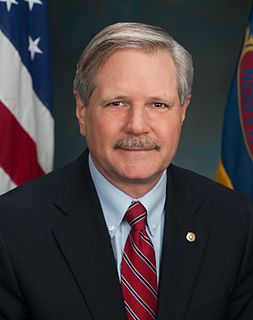A Quote by John Hoeven
The irony of environmental opposition to the Keystone XL project is that stopping the pipeline to the U.S. will not stop production in the oil sands of Canada. Instead of coming to the United States, the oil will still be produced and shipped by rail or a pipeline similar to the Keystone XL to Canada's Pacific Coast.
Related Quotes
We need to ask elected officials supporting Keystone XL whether they're willing to put their constituents and our environment at risk so that foreign oil tycoons get a better return on their tar sands investments. Keystone XL backers will keep trying to sell us a sucker's deal; it's up to us to say no.
In the context of Russia's invasion of Ukraine and a still-stagnant economy, President Barack Obama faces two important questions on energy transmission: a decision on the construction of the Keystone XL oil pipeline and the question of increasing American natural gas exports. These are choices that will resonate from Crimea to Cove Point.




























